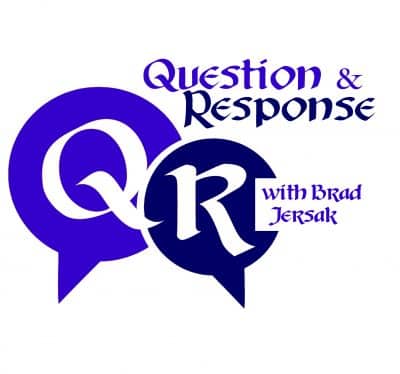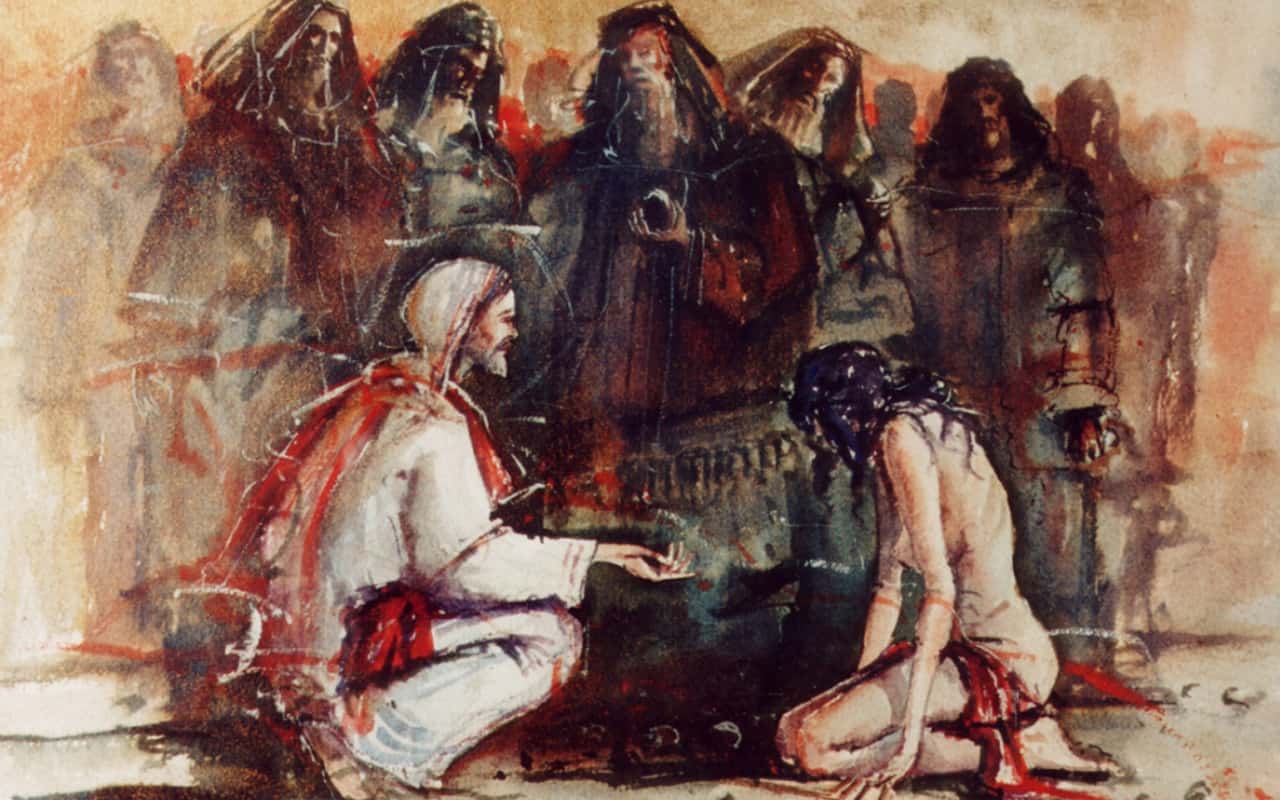Q&R with Brad Jersak – “No longer counting our sins against us”

Question
“For God was in Christ, reconciling the world to himself, no longer counting people’s sins against them. And he gave us this wonderful message of reconciliation.” (2 Corinthians 5:19 NLT)
- + no longer counting people’s sins against them
- + no longer counting people’s sins against them
- + no longer counting people’s sins against them
- + no longer counting people’s sins against them
- + no longer counting people’s sins against them
So, why do we count sins against ourselves and others? If we stopped counting (perceived) sins done by others, would we not then stop counting sins by or against ourselves?
And what then does the message or separation from God has to do with anything? Are we not then betraying the message of reconciliation, or confirming that we actually have not connected with it, and could actually be distorting the character of God to others?
Asking for a friend. 😉
Response
Amen!
I love that phrase. One of my favorites in the whole Bible!
It’s so loaded. It means that salvation is not about counting, not about payment, not about punishment.
It is not transactional or economic or juridical.
It means that the Cross is pardon, not punishment.
That forgiveness is free (though costly), not paid for.
The debt is written off, not paid off.
Christ was not paying God or the devil or justice or any other heavenly or hellish accountant.
God was IN Christ, redeeming us (setting us free) without fees or bribes or appeasement.
God is FREE to forgive and always has been!
The Cross sets us free from our addiction to sacrificial religion, revealing and enacting grace as pure gift.
But what I found troubling in the question was the New Living Translation’s mistranslation. I normally love the NLT for its accuracy and readability. They put effort into both the biblical languages but also the English, ensuring an even flow of Time magazine readability.
But here, they translate Paul’s words to say “no longer” … as if our sins had been held against us before the Cross, but now they are no longer.
There may be SOME nuance in which we carefully affirm, “Of course, yes, the Cross is necessary to universalize forgiveness.”
But once the Cross happens, there is no ‘before’ or ‘until’ or ‘no longer.’ The Cross stands while the world and all history, past, and future, revolves around the Cross event as the axis mundi (world axis). This free forgiveness extends to all … including reaching back to Abraham, Moses, David, and Hosea so that there never was a time when “he counted our sins against us.”
“No longer” is simply not what the New Testament text says. As in most other translations, it’s a straightforward emphatic “Not.” In Greek, simply μὴ. “…not counting people’s sins against them…” Because that’s not the nature of God. The nature of God is love, as in 1 Corinthians 13:5. “Love keeps no record of wrongs.”
So the NLT took a big theological liberty here that is probably not just an innocent mistake. It’s theological overreach that possibly verges toward heresy. At least that’s how I would see it.
If so, what do we do with the passages about being held to account for every inappropriate word, stray thought, or misdeed on the Day of Judgment? I’ll give that some more thought and respond in a future blog. Stay tuned. But in the meantime, I will say that as “mercy triumphs over judgment” (James 2:13), judgment texts are always subordinate to mercy texts. Not that they negate their meaning and purpose, but that the Cross is already the final word and final judgment, since God’s verdict of mercy was forever finalized there.











 Plain Truth Ministries | Box 300 | Pasadena, CA 91129-0300
Plain Truth Ministries | Box 300 | Pasadena, CA 91129-0300

